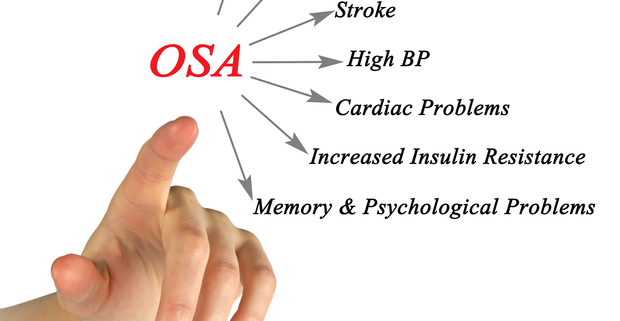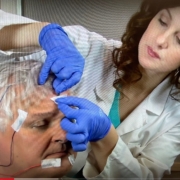The Dangers of Untreated Sleep Apnea
Silent Nightmares: The Dangers of Untreated Sleep Apnea
In a world that never sleeps, it’s ironic that many individuals are struggling with a condition that disrupts their peaceful slumber – sleep apnea. This silent and often undiagnosed disorder poses serious risks to both physical and mental health, highlighting the importance of seeking comprehensive care. At the Comprehensive Sleep Care Center, we understand the gravity of untreated sleep apnea and aim to shed light on the potential dangers associated with this condition.
The Silent Intruder:
Sleep apnea is a disorder characterized by pauses in breathing during sleep. These interruptions, called apneas, can last for seconds to minutes and may occur numerous times throughout the night.
According to the American Academy of Sleep Medicine (AASM), it was estimated that up to 80% of moderate to severe sleep apnea cases remained undiagnosed. This high percentage highlights the under-diagnosis and undertreatment of sleep apnea, which can have serious health consequences such as:
-
Cardiovascular Complications:
One of the most alarming dangers of untreated sleep apnea is its impact on cardiovascular health. The repeated interruptions in breathing lead to fluctuations in blood oxygen levels and increased stress on the cardiovascular system. Over time, this can contribute to hypertension, irregular heartbeats, and an increased risk of heart attack and stroke.
-
Daytime Fatigue and Impaired Cognitive Function:
The constant disruptions in sleep prevent affected individuals from reaching deep, restorative sleep stages. Consequently, untreated sleep apnea often results in persistent daytime fatigue, difficulty concentrating, and memory problems. This not only affects personal and professional performance but also increases the risk of accidents, both at home and in the workplace.
-
Metabolic Consequences:
Untreated sleep apnea has been linked to metabolic disturbances, including insulin resistance and an increased risk of type 2 diabetes. The hormonal imbalances triggered by sleep apnea can interfere with the body’s ability to regulate blood sugar, contributing to the development of diabetes over time.
-
Compromised Mental Health:
Sleep apnea is not only a physical health concern but also has significant implications for mental well-being. Chronic sleep deprivation and the associated cognitive impairments can contribute to mood disorders such as depression and anxiety. The toll on mental health can create a vicious cycle, as these conditions may further exacerbate sleep disturbances.
-
Reduced Quality of Life:
Left untreated, sleep apnea can significantly diminish an individual’s overall quality of life. The persistent exhaustion, cognitive difficulties, and health complications can strain relationships, limit professional success, and undermine one’s ability to enjoy daily activities.
Comprehensive Care at the Sleep Care Center:
At Comprehensive Sleep Care Center, we our team of sleep medicine experts collaborates to provide personalized treatment plans that may include lifestyle modifications, sleep hygiene, positive airway pressure (PAP) therapy, or oral appliance therapy. Regular monitoring and follow-ups are integral to ensure the effectiveness of the chosen treatment and make adjustments as needed.
Conclusion:
Untreated sleep apnea is a silent and insidious threat that can have far-reaching consequences on both physical and mental health. By raising awareness about the dangers associated with sleep apnea, we hope to encourage individuals to seek timely and comprehensive care. At the Comprehensive Sleep Care Center, our commitment is to help you reclaim restful nights and achieve optimal health, ensuring that the dangers of untreated sleep apnea are addressed with expertise and compassion. Remember, a good night’s sleep is not just a luxury – it’s a necessity for a healthier, happier life.











